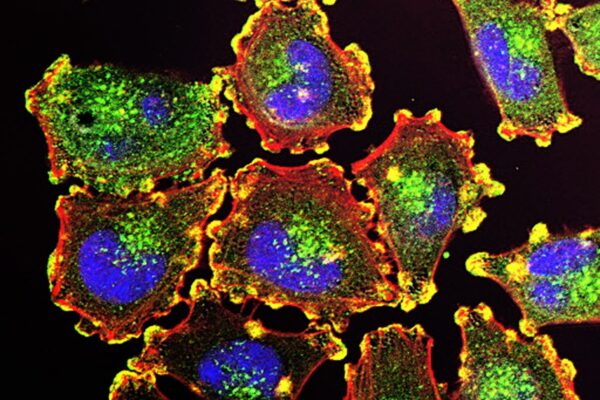
Cutaneous squamous cell carcinoma that does not respond to treatment with an immunotherapy called a checkpoint inhibitor has no FDA-approved therapeutic alternatives. Replimune’s lead program, an oncolytic virus, has fallen short in a study hoped to give patients one. The company is still pressing forward with its engineered virus in other types of skin cancer, but not without a pipeline shakeup that means the end for other programs.
Replimune’s lead therapeutic candidate, RP1, is based on a strain of the herpes simplex virus engineered to increase its anti-tumor activity. Injected into a solid tumor, replication of the virus kills cancer cells. This oncolytic virus is also intended to prompt an additional immune response against the cancer.

With the Rise of AI, What IP Disputes in Healthcare Are Likely to Emerge?
Munck Wilson Mandala Partner Greg Howison shared his perspective on some of the legal ramifications around AI, IP, connected devices and the data they generate, in response to emailed questions.
The results announced Tuesday are from a Phase 2 clinical trial that the Woburn, Massachusetts-based company hoped would be a registrational study. A total of 211 patients with cutaneous squamous cell carcinoma were randomly assigned to receive RP1 plus the Regeneron Pharmaceuticals checkpoint inhibitor Libtayo, or Libtayo alone. The two main study goals were assessing the complete response rate and the overall response rate.
Replimune said the study drug arm achieved a complete response rate of 38.1% versus 25% in the control arm—just short of statistical significance. The overall response rate results were closer: 52.5% in the study drug arm versus 51.4% in the Libtayo-alone group. One possible explanation for the disappointing results is an imbalance in tumor burden at baseline across the treatment groups, which Replimune said “may have impacted the number of responses seen.”
In particular, Replimune said a significantly greater number of patients with a high tumor burden (larger than 10 cm in diameter) at baseline were treated in the study drug group compared to the group given Libtayo alone. In patients with a lower total tumor burden, the complete response rate in patients treated with RP1 and Libtayo showed much clearer separation compared to those given Libtayo alone. Replimune said this clinical trial will continue in order to assess the duration of response, progression-free survival, and overall survival.
In a note sent to investors Tuesday, Leerink Partners analyst Jonathan Chang wrote that the complete response rate results suggest the trial outcome would have been positive with a more robust study design. He said the results are a major setback for RP1, though the future readout of additional data offers the opportunity to salvage this program in cutaneous squamous cell carcinoma.
Chang also said RP1 has an opportunity in melanoma, where the data look better so far. The Phase 2 test is evaluating RP1 in patients whose disease has failed to respond to treatment with a checkpoint inhibitor. This study evaluated the pairing of RP1 with the Bristol Myers Squibb immunotherapy Opdivo. Replimune said that in the full 140-patient cohort of patients whose cancer failed to respond to a checkpoint inhibitor, about 1 in 3 patients treated with the RP1/Opdivo combination achieved a durable response. The company believes this result will support a regulatory submission, which it plans to file in the second half of 2024.
According to Replimune’s telling of a recent meeting with the FDA, the agency acknowledged that patients whose melanoma has failed to respond to treatment with an anti-PD1 checkpoint inhibitor represents an unmet need. Agreement was reached on the design of a confirmatory study, which the FDA wants Replimune to start by the time it files an application seeking accelerated approval.
The Replimune pipeline also includes RP2 and RP3, oncolytic viruses engineered to enhance anti-tumor responses and address more tumor types. The company is planning a randomized controlled clinical test of RP2 as a second-line treatment in uveal melanoma. To maintain focus on this clinical trial and the others deemed priority studies, Replimune said it will discontinue development of RP2 and RP3 in squamous cell carcinoma of the head and neck and colorectal cancer. A second-line hepatocellular carcinoma clinical trial will continue with RP2 only. Development of RP3 will be discontinued.
Replimune reported a cash position totaling $496.8 million as of the end of September. With the pipeline reprioritization, the company expects it will have enough cash to last into early 2026.
Public domain image by Julio C. Valencia via the National Cancer Institute














